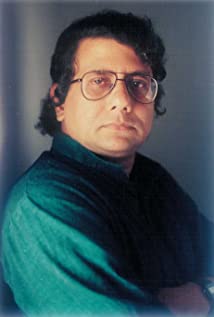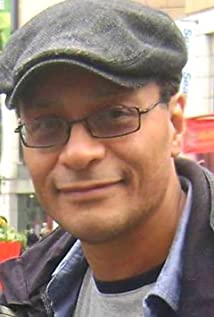
As per our current Database, Tanvir Mokammel is still alive (as per Wikipedia, Last update: May 10, 2020).
Currently, Tanvir Mokammel is 69 years, 1 months and 18 days old. Tanvir Mokammel will celebrate 70rd birthday on a Saturday 8th of March 2025. Below we countdown to Tanvir Mokammel upcoming birthday.
| Popular As | Tanvir Mokammel |
| Occupation | Writer |
| Age | 69 years old |
| Zodiac Sign | Pisces |
| Born | March 8, 1955 (Khulna, East Pakistan [now in Bangladesh]) |
| Birthday | March 8 |
| Town/City | Khulna, East Pakistan [now in Bangladesh] |
| Nationality | East Pakistan [now in Bangladesh] |
Tanvir Mokammel’s zodiac sign is Pisces. According to astrologers, Pisces are very friendly, so they often find themselves in a company of very different people. Pisces are selfless, they are always willing to help others, without hoping to get anything back. Pisces is a Water sign and as such this zodiac sign is characterized by empathy and expressed emotional capacity.
Tanvir Mokammel was born in the Year of the Goat. Those born under the Chinese Zodiac sign of the Goat enjoy being alone in their thoughts. They’re creative, thinkers, wanderers, unorganized, high-strung and insecure, and can be anxiety-ridden. They need lots of love, support and reassurance. Appearance is important too. Compatible with Pig or Rabbit.


Tanvir Mokammel is a film-maker and an author of books from Bangladesh. He was born in March 8, 1955 in Khulna, Bangladesh (then East Pakistan). He has made seven full-length feature films and fourteen documentaries till date (2018).
His films, some of which have received national and international awards are - Nodir Naam Modhumoti (1996) (The River Named Modhumoti), a deconstruction of the William Shakespeare's Hamlet-story on the backdrop of Bangladesh's liberation war against Pakistan in 1971; Chitra Nodir Pare (1998) (Quiet Flows the River Chitra), plight of a Hindu family who after the partition of India in 1947 refused to migrate to India from the then East Pakistan (now Bangladesh); Lalsalu (2001) (A Tree Without Roots), based on a novel by Syed Waliullah about a Mullah who established a false shrine; Lalon (2004), a bio-pic of Fakir Lalon Shah, the famous baul song-composer of the 19th century rural Bengal; Rabeya (2008) (The Sister), a filmed deconstruction of the Greek play "Antigone" by Sophocles; Jibondhuli (2014) (The Drummer), a story of the destiny of a poor low-caste Hindu drummer during the liberation war of Bangladesh against Pakistan; Rupsha Nodir Banke, a chronicle of the life of a leftist politician who was killed by Razakars during the 1971 Liberation War.
Tanvir Mokammel's prominent documentaries are - Achin Pakhi (1996) (The Unknown Bard), a bio-pic of Fakir Lalon Shah and his baul ideas; Teardrops of Karnaphuli (2005) (Karnaphulir Kanna), about the political conflict between the Chakma and other ethnic peoples of the Chittagong hill tracts against the Bengalees; Bonojatri (2005) (Riders to the Sundarbans), a documentary about the journey of the poor fishermen's wives through the mangrove forest of the Sunderbans to reach the sea; Oie Jamuna (2002) (A Tale of the Jamuna River), a journey-film about the Jamuna river depicting the condition of the river and the relationship of the river with the people living beside it; Bostrobalikara: Garment Girls of Bangladesh (2007), a documentary which follows three garment girls who came to work from village to the big city Dhaka and through them depict the condition of this billion dollar export-oriented industry in Bangladesh, the price war and the wage factor of the workers; Tajuddin Ahmad: An Unsung Hero (2007) (Nissongo Sarathi), a bio-pic of Tajuddin Ahmad, the first prime minister of Bangladesh who, in absence of Bangabandhu Sheikh Mujibur Rahman, led the Bangladesh liberation war and was later killed inside Dhaka central jail; Swapnabhumi (2007) (The Promised Land), depicts the plight of the Urdu-speaking Muslims from Bihar, popularly Known as the "Biharis" who had migrated from India in 1947 to live in the then East Pakistan (now Bangladesh); Images and Impressions (1999), a documentary about the International People's College (IPC) in Helsingør, Denmark where the film-maker taught for a few months; 1971 (2011), a mega-documentary on the liberation war of Bangladesh in 1971; The Japanese Wife (2012) (Japani Bodhu), a documentary on Hariprobha Takeda, the first Bengalee woman who wrote a travelogue on Japan and used to read Bengali news from the Tokyo Radio for Subhas Chandra Bose's Azad Hind Fouz.
Tanvir Mokammel's important books are "A Brief History of World Cinema", "The Art of Cinema", "Charlie Chaplin: Conquests of the Vagabond" (a book on the life and art of Charles Chaplin), "Syed Waliullah, Sisyphus and Quest of Tradition in Novel" (a literary criticism on the work of novelist Syed Waliullah), translation of Maxim Gorky's play "The Lower Depth", "Grundtvig and Folk Education", a book on the alternative educational ideas and Nikolai Frederik Severin Grundtvig's educational concepts.
During his youth, Tanvir Mokammel worked as a progressive journalist and spent few years as a left-wing activist helping landless peasants in their struggles. Mr. Tanvir Mokammel is now the director of "Bangladesh Film Institute" (BFI) and "Bangladesh Film Centre" (BFC).










